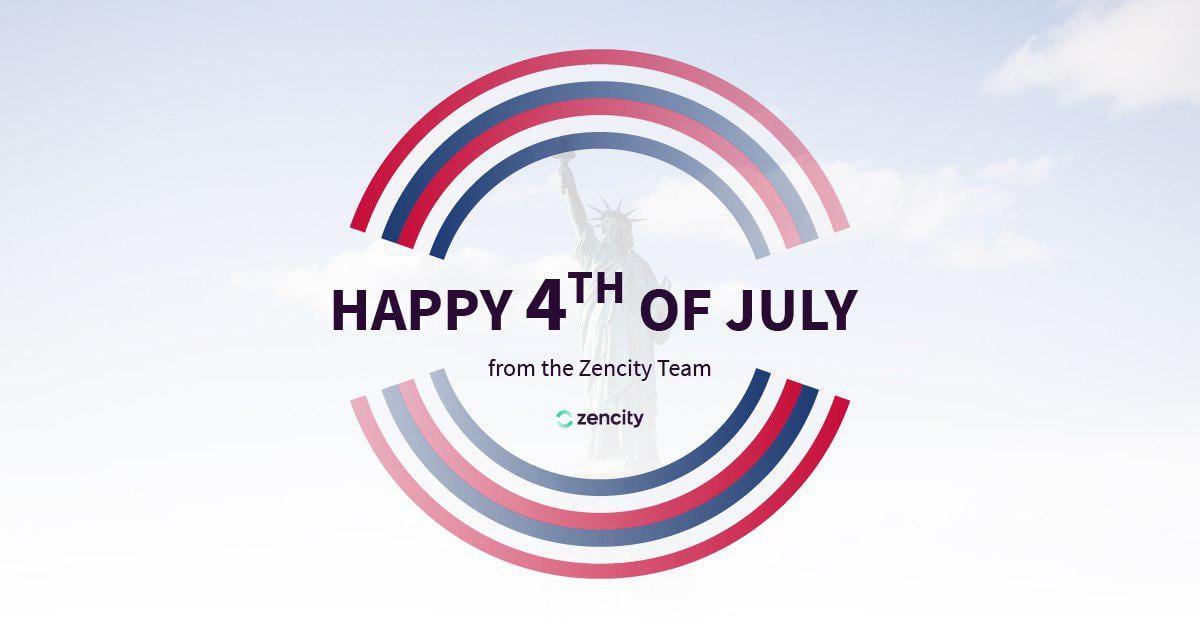How Technology Can Help Local Governments Manage Summer Events
.png)
Zencity
The Platform for Community Trust
Ah, summer. It’s that time of the year where any thoughts of sweaters are pushed aside, while sunshine, trips to the beach, BBQs, and 4th of July fireworks take center stage. It’s also that time of year when local governments across the country are hard at work putting on fabulous events. Lot’s of them. Whether it’s live concerts or artisan fairs, a large number of people will be heading out to experience summer festivals and the like, including city and county sponsored affairs.
The Shopping List for a City Sponsored Event
Most local governments in cities, towns, and counties across the US will be organizing some kind of event this summer, especially for the 4th of July. No matter which government body is responsible, an event of that scale is a complicated logistical matter that requires:
- Food stalls
- Stage(s)
- Performances
- Trash Collecting
- Security
- Managing and redirecting traffic
- Fireworks
- And much, much more
Of course, none of the above would actually be possible without the right resources. And as any city knows, the budget can be a tricky issue. Furthermore, local government-sponsored events are usually available to the public free of charge. This makes it much harder to determine if an event was a success or not, since there are no ticket sales, for example, which is how a private event’s success might be measured. A local government’s bottom line, however, isn’t usually to make a profit. It’s to create a positive experience for residents and participants. So how can a city know if the event was worth the investment if it can’t be measured based on what was earned? Is the number of people attending enough? Or does a city need to know more? That’s where technology comes into the picture.
Feedback About Events is Accessible with the Right Tools
Most people will usually not directly communicate with a city and say that an event the city put on great and that they enjoyed it. But, they might express that they loved a fireworks display on Facebook, or post a selfie with a stage behind them on Instagram. These informal channels provide a wealth of information that would nearly be impossible to comb through manually without the help of tools such as an Artificial Intelligence platform like Zencity, which can analyze thousands of posts efficiently, quickly, and provide the data in an organized fashion. From this information, a city can actually get a lot of positive feedback. A deeper analysis of this data might help a sponsoring government organization learn even more, for example, that what was initially supposed to be a community targeted event had actually attracted out-of-town tourists. Maybe the event even got the city some attention in a regional or national news outlet. A city can also learn specifically what residents enjoyed – the local brewery’s beer stand – and what they enjoyed less – the location of the port-a-potties. A city can then learn from its successes and learn what to keep and repeat at the next event they organize, and what might need changing up.
Using Technology to Manage and Problem Solve in Real-Time
Complaints and highlighting the negative is usually the type of feedback a city is used to, but this is also where AI can shine, no matter what stage in the process a city is in when managing an event. Whether it’s pre-planning to understand what your residents want, to problem-solving during the event, to measuring the impact of the event in its aftermath, Artificial Intelligence can help a city understand what’s happening with their event by monitoring both official and unofficial channels where residents are communicating. This might include noise complaints to 311 from residents that live nearby the event (an official channel), or event-goers complaining on Twitter that there are not enough toilet facilities (an unofficial channel). A city can then act in real-time to tackle complaints before things can escalate.
By keeping track of what happens throughout the process of managing the event, especially through informal channels like social media or the comments section of a news site, cities can also take stock and understand what mistakes were made after the event was completed. For example, a city might consider moving the location of an event the next time it organizes it to a location with better public transportation access. Or perhaps the performers were lack-luster and the performances were not a crowd pleaser. AI can analyze feedback in a nuanced way to provide nuanced, actionable insights about an event so that the city can plan better and know what needs improvement next time around.
Did the Event Move the Needle?
With the use of technology, a city can gain insights and learn both the good and the bad from a city-sponsored event, whether it’s for the 4th of July or a summer concert series. Moreover, by taking a data-driven approach, a city or county can justify the financial costs of sponsoring a repeat event, investing more in an event, or leaving it as a one-time experiment and shifting next year’s budget to something else. All a local government organization has to do is use the right tools to tap into and analyze the data out there so that it can make the right decisions no matter what stage of the event process they’re in.
%20copy-1.png?width=544&height=120&name=Logo_black%20(1)%20copy-1.png)



